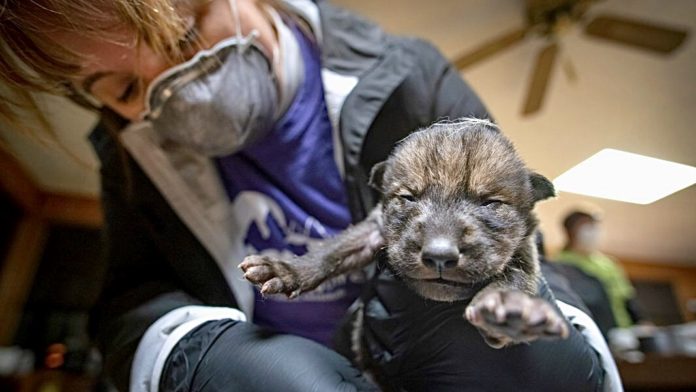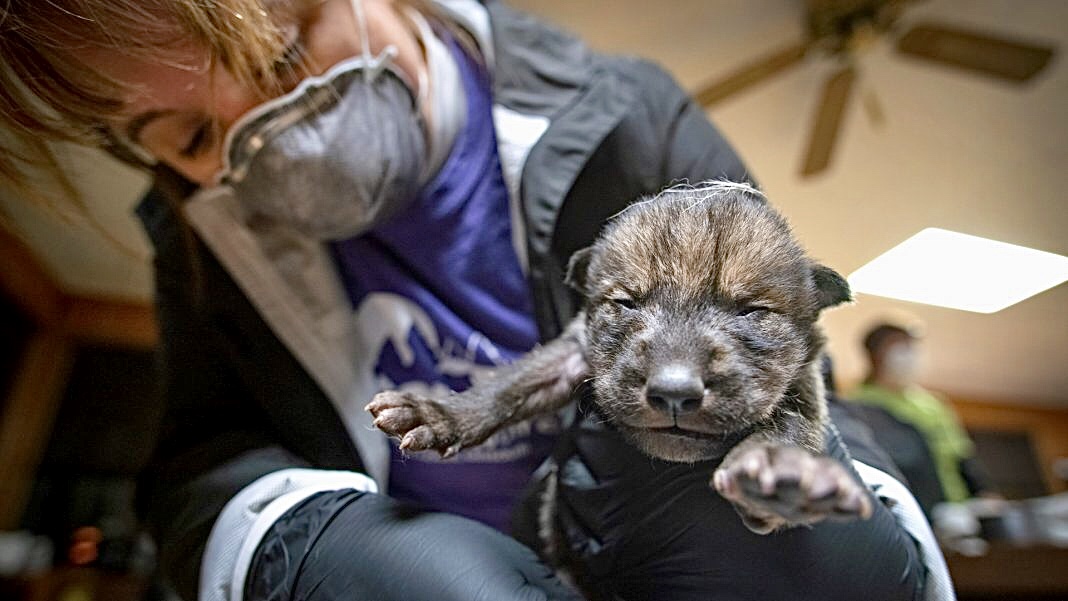
9 Critically Endangered Mexican Gray Wolf Pups Born In Captivity Will Be Released Into The Wild & Raised By Wolf Packs In Arizona & New Mexico
By Lauren Lewis
You can help all animals and our planet by choosing compassion on your plate and in your glass. #GoVeg
RELATED ARTICLES
Banning Cruelty: New Legislation Aims To Ban Octopus Farming In The U.S.
New bipartisan legislation has just been introduced in the U.S. to ban commercial octopus farming and prohibit imports of farmed octopus from foreign countries.
The...
Outrage In Yellowstone! Grizzly Bear Killed By Wildlife Officials & Left With Head & Paws Cut Off
Photo by: Trisha McFarland / Cowboy State Daily
A photo of a dead grizzly bear with its head and paws cut off has caused an...
Inside Florida’s Illegal Horse Meat Trade: Undercover Footage Shows Racehorse Being Shot & Butchered
A heart-wrenching discovery of illegal horse slaughter has emerged, with video footage exposing the tragic killing of a racehorse named 'Funny Biz,' who was...
Popular stories
News
Donations Needed As Search & Rescue Efforts Are Underway After Devastating Mud Slide In South Africa Claims The Lives Of Countless Animals
Photos from Bloemfontein SPCA, Facebook
The devastating collapse of a dam wall on September 11th at an abandoned Jagersfontein diamond mine in South Africa's Free State province...
Rescue
Orangutan Named ‘Boncel’ Is Rescued & Translocated For A Second Time Due To Loss Of Habitat In Indonesia
An adult male orangutan, that was given the name Boncel, was recently rescued for a second time in West Kalimantan Province (Indonesian, Borneo).
The Wildlife...
Breaking News
10 Million Hectares Of Amazon Rainforest Has Been Designated As A Protected Area In Bolivia
A new protected area of rainforest in the El Gran Manupare Integrated Management Natural Area was just designated by the Municipality of Sena, in...





